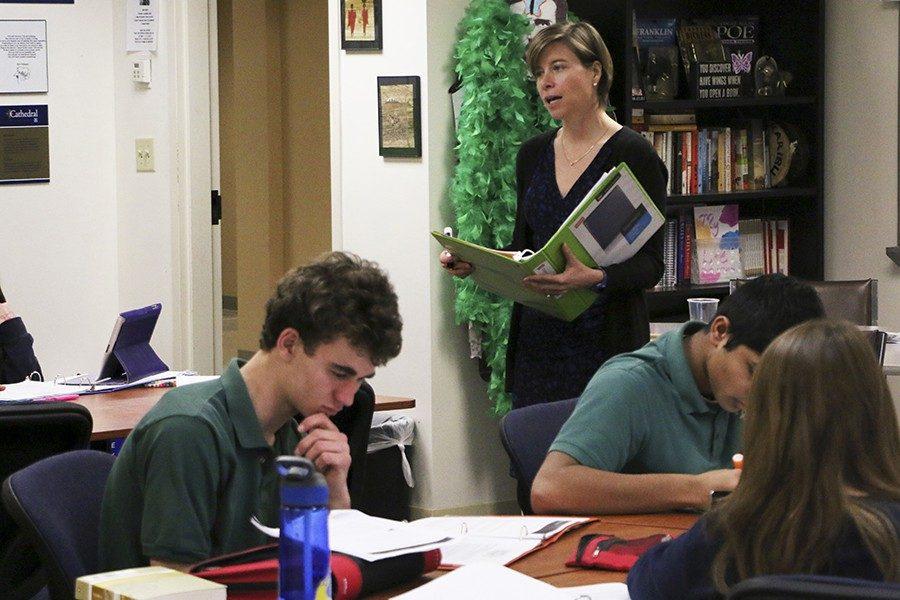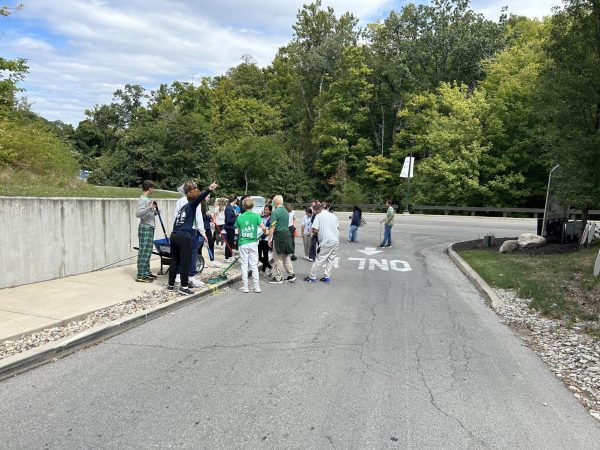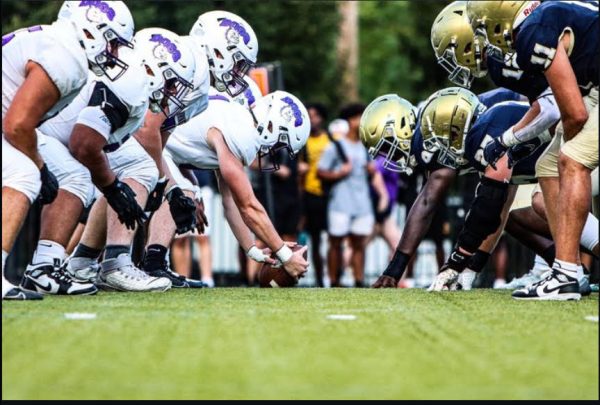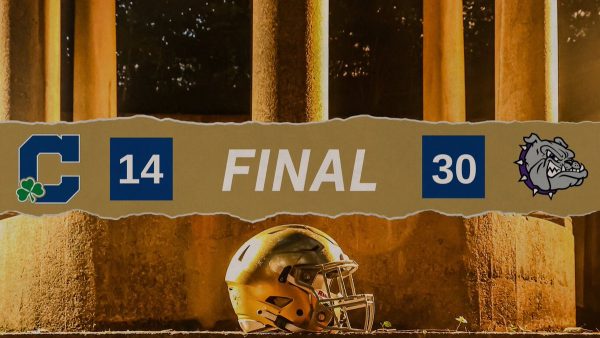New Theory of Knowledge teacher enlightens students
Discussion a key component of the class, participant says
Juniors Audrey Teasley, Jake Welch and Chase Santamaria take notes in Mrs. Lizabeth Bradshaw Theory of Knowledge course.
Epistemology, or the study of knowledge, is more than philosophy. It covers the difference between belief and opinion and “how we know what we know and is what we know really valid,” senior Hunter Hopkins said. Epistemology best describes TOK, or the Theory of Knowledge class, she said.
“Theory of Knowledge is pretty different from any other class in Cathedral,” Hopkins said.
The class is available only to students in the full International Baccalaureate program and is taken the second semester of junior year and the first semester of senior year.
Although it replaces the required theology credit, students learn material beyond religion, junior Esther Louis said.
“TOK is really interesting,” junior Seth Bolden said. “It really looks at how we understand things. It’s really asking the question of why.”
The heart of TOK
The teacher is a central aspect of a successful class. “A lot of IB is discussion based,” Hopkins said. TOK is no exception. It is important for the teacher to guide discussions, she said.
“IB is not easy,” Bolden said. Teachers prepare and assist students throughout the program. Students and instructors need to work together, but the teacher contributes to much of the environment, he said.
If the teacher is open to new ideas, the class will be more successful, Louis said. Students will learn more, enjoy the class and have a better experience.
Practical change
This semester, the TOK class has seen a change. Mrs. Lizabeth Bradshaw, English teacher and CAS and extended essay coordinator, is instructing the class previously taught by theology teacher Mr. Ken Jensen.
“The change was made purely for practical purposes, not because either teacher was better for the subject,” Hopkins said.
Jensen ran the class well, especially with his experiences and knowledge, she said. “He always tried to be mindful that most of us were coming from a Christian perspective and tried to broaden that view,” she said.
The transition was a conventional change so the TOK teacher would be the same individual in charge of the IB extended essay and CAS, or Creative Action Service, hours.
Although Bradshaw has never instructed TOK, she has taught IB courses for six years and instructed theology her first two years of teaching.
“I think it will be an exciting challenge to teach it,” she said.
“I think it’s natural and good and healthy in a school for different faculty members to get to learn and grow in different areas,” Bradshaw said. “If you don’t change what you teach, then you stop growing,” she said.
Similarities and differences
Bradshaw will follow the same guide as Jensen, she said. He is “a great instructor and I have a lot of respect for him,” she said. However, the class will still be different.
“The teacher makes a big difference,” Hopkins said. Since a lot of beliefs and ideas come from faith, having TOK taught by a theology teacher brought in a theological perspective, she said.
Individual teaching style and choices impact the class, Bradshaw said.
Students and teachers had different options for approaching the material.
The class is learning about subjective truths and differences in how individuals view the world. “We all have our own personal beliefs,” Bolden said.
Student driven
Often, there is no correct answer to the questions asked, Bolden said. Students need to form their own opinions and support their answers.
The teacher moderates the discussions. “Mrs. Bradshaw does a really good job,” Bolden said. “I heard Mr. Jensen was a great teacher, too.”
Hopkins said she is glad she had the opportunity to take the Theory of Knowledge class. The class questions what people know and the logic behind it.
Bradshaw said, “The more that I learn about the Theory of Knowledge, the more I value it. My hope would be that in future years, it would be open to more students, to be able to take (it).”







